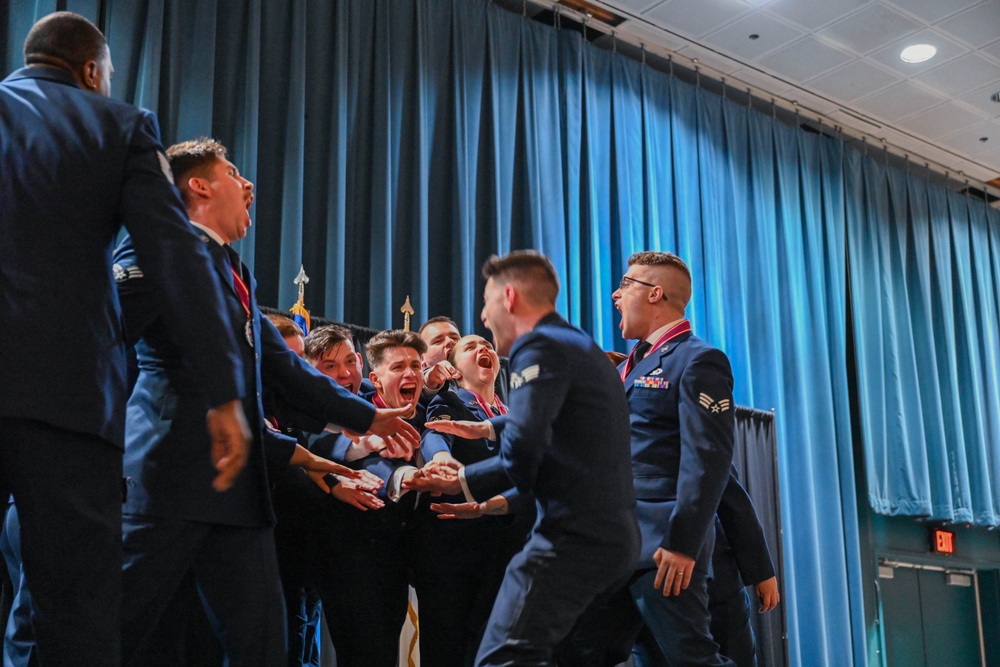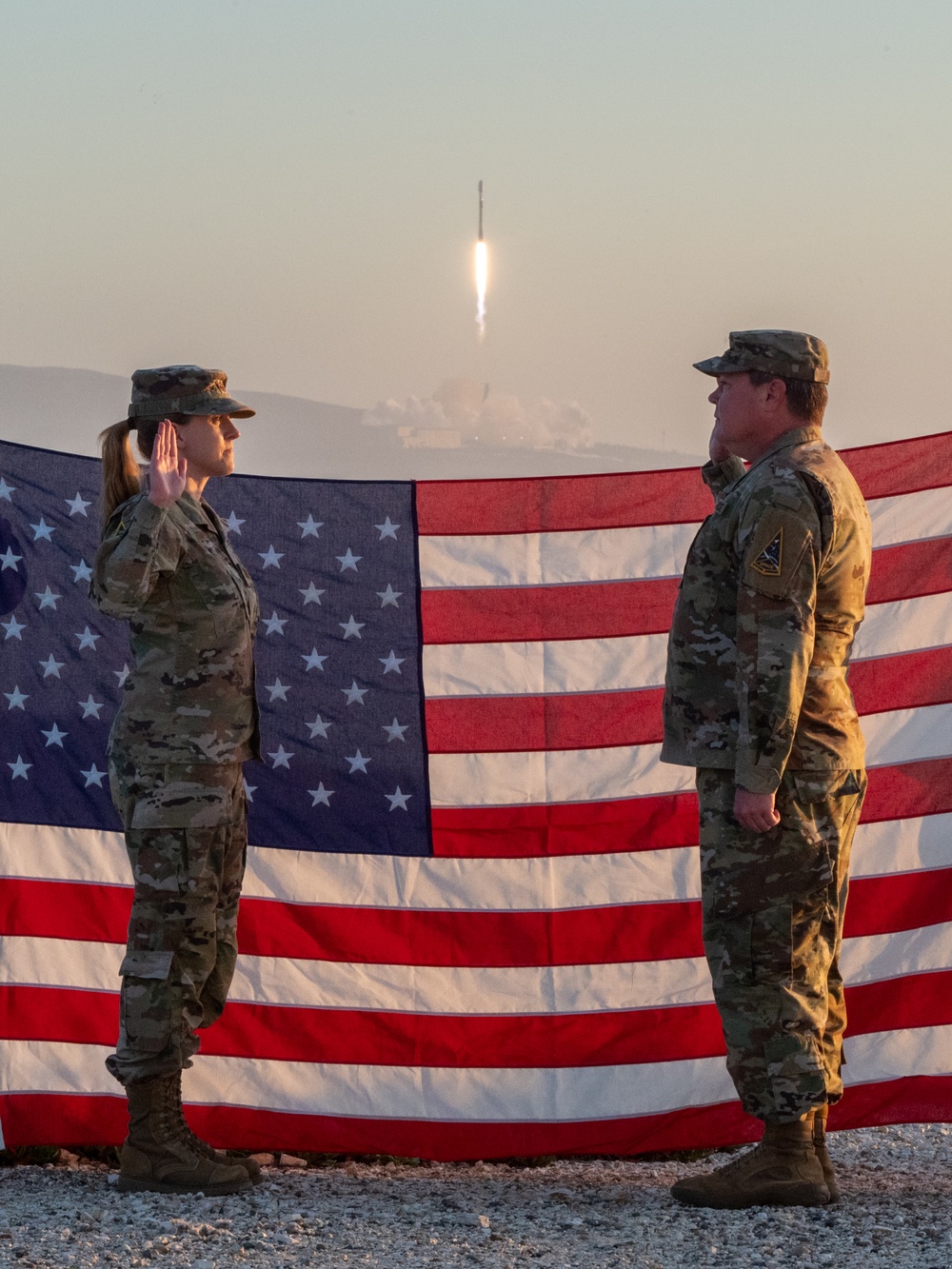DVIDS – News – Monarch Butterfly Conservation Partnership Celebration
CAMP PENDLETON, Calif. – Senior leaders from the U.S. Department of the Interior, U.S. Fish and Wildlife Service and the U.S. Department of Defense, hosted a celebration of a collaborative conservation strategy benefitting the monarch butterfly on military lands at Marine Corps Base Camp Pendleton, Calif. December 12, 2024. The event celebrated the partnership and efforts to preserve the monarch butterfly and was comprised of several speakers, including U.S. Marine Corps Brig. Gen. Nick I. Brown, Marine Corps Installations West commanding general, commenting on how Camp Pendleton, along with other DoD installations, makes efforts to preserve wildlife.
The Fish and Wildlife Service and DoD have worked together to develop an initiative that demonstrates the DoD’s dedication to monarch butterfly conservation. This strategy preserves the iconic species while enabling the DoD to fulfill its mission with flexibility and confidence. The DoD has been dedicated to this cause for more than a decade, possessing unique authorities and extensive initiatives that promote ecosystem resiliency across its land base of almost 24 million acres.
The monarch butterfly is not currently considered an endangered species, however, the proposal to designate a critical habitat and list the monarch butterfly is expected to be published in the Federal Register towards late December of this year. Jim Asmus, the installation Environmental Security Department Resource Upland Management section head, explained Camp Pendleton’s proactive approach of quickly learning their role and making plans to someday get the butterflies off the endangered species list once they are officially listed.
“There are federal laws, like the Injured Species Act, that include obligations you’re forced to do by law [to protect these species], but the Marine Corps was way out front,” stated Asmus. “We’ve been doing things for years now without being forced to because we’re good stewards of natural resources that are publicly owned.”
Throughout the MCI-West area of responsibility, there are 26 federally listed threatened and endangered species. On Camp Pendleton alone, the Marine Corps has continued to preserve and protect 125,000 acres of land, six major stream drainages, 17 miles of undeveloped beaches and coastline, and 19 federally listed threatened and endangered species.
Alisa Zych, the installation Environmental Security Department Resource Management branch head, described their intent which aligns with MCI-West’s mission to ensure the long-term viability of its installation which directly affects the objectives of our Marines and Sailors.
“Our mission is to ensure that we manage endangered species in the environment, our ecosystem, and to ensure that the Marines can still train on Camp Pendleton,” stated Zych.
MCI-West is committed to preserving its base facilities, the land it resides on, and many species of plants and animals that call the region their home. The Marine Corps actively manages their deliberate and demanding training requirements, allowing their spaces to be used as not only a training venue but also a sanctuary for susceptible species.
Asmus expressed that Marine Corps training and the conservation of endangered species can occur together while promoting the butterflies’ survival in an effort to move some species from the endangered list to the threatened list.
“One of the goals [we have] would be to demonstrate that Marine Corps training and good monarch conservation can coexist,” stated Asmus. “What Marines need to be successful in a training environment to be war fighters, is they need a lot of lightly developed or undeveloped space.”
Asmus continued to explain that this underdevelopment of land mutually benefits the monarch butterflies and their conservation.
“Camp Pendleton offers 17 miles of fairly, very lightly undeveloped land that a lot of creatures benefit from, including our butterfly,” stated Asmus. “The trees growing very near the ocean are what the butterflies benefit from during the winter, because what they want is something where they’re not going to freeze to death, so when you’re very close to the ocean, you will not get freezing temperatures, and by luck, Camp Pendleton has just that.”
Martha Williams, the Director of the U.S. Fish and Wildlife Service, expressed her gratitude for the partnership and hopes to continue to work together to preserve the monarch butterflies.
“With the announcement of the proposed listing of the monarch butterfly, this conservation partnership is a symbol of hope,” stated Williams. “It demonstrates the dedication and determination of the Service’s conservation partners, like the DoD, to work to promote healthy monarch populations. We are thankful to have the DoD as partner in this commitment to conserve the monarch.”
| Date Taken: | 12.12.2024 |
| Date Posted: | 12.12.2024 20:24 |
| Story ID: | 487372 |
| Location: | CAMP PENDLETON, CALIFORNIA, US |
| Web Views: | 18 |
| Downloads: | 0 |
PUBLIC DOMAIN
This work, Monarch Butterfly Conservation Partnership Celebration, by Cpl Sydni Jessee, identified by DVIDS, must comply with the restrictions shown on https://www.dvidshub.net/about/copyright.


 Private Internet Access gives you unparalleled access to thousands
of next-gen servers in over 83 countries and each US state. Your
VPN experience will always be fast, smooth, and reliable.
Private Internet Access gives you unparalleled access to thousands
of next-gen servers in over 83 countries and each US state. Your
VPN experience will always be fast, smooth, and reliable.![DVIDS – Images – DM’s Special Warfare Airmen conduct a cave search and rescue exercise [Image 5 of 9] DVIDS – Images – DM’s Special Warfare Airmen conduct a cave search and rescue exercise [Image 5 of 9]](https://101veterans.com/wp-content/uploads/2025/02/1740508440_1000w_q95.jpg)

